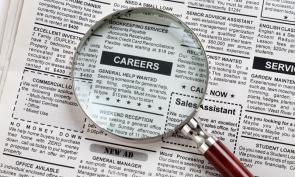
There are two busy seasons in the year: January through May and late August through the first three weeks of December. After the first three weeks of December, the lateral market often goes quiet as firms prepare for the holiday season, people take vacations, and firms reassess their needs in the new year (anticipating the expected turnover which occurs every January). Thus, if you are considering a move between late August and December, that is good because the lateral market is active.
It is also good because those who attempt to move during this period will have a jump on their competition — as the candidate pool will flood once the calendar turns to January. As a result, you are looking at an active hiring quarter and less competition as 80% of individuals choose not to switch jobs during this period because (1) they are waiting for their year-end bonuses, (2) they don't want to consider a move during the holiday season when they have other activities (family and work) going on and may feel distracted, and (3) they think that January will yield a larger number of openings.
With the pros and cons of the late August to December hiring season clarified, however, one also has to consider personal priorities, which during this time are largely financially driven. If you are waiting for a bonus, your desire to move now may be hindered by the fact that you need that bonus, whether to pay off student loans, use the money to set against an existing mortgage, or simply because you have worked hard all year and feel entitled to the payout.
To this end, candidates always ask whether firms will "make them whole" with respect to their bonuses during the August to December hiring period — meaning if a candidate moves during the fall season, will the new firm give him or her a full bonus as an incentive to have the candidate join so late in the season? The answer to that question is usually "no."
As a rule, when a candidate moves to a new firm after June, the new firm will prorate his or her year-end bonus. Does this mean that one can never get a full bonus if he or she moves in December? Well, some do. However, it is rare, and it often happens when the candidate is (1) bringing a specialty skill set to a firm and/or (2) filling a very tough opening and thereby meeting a dire need of the firm — which incentivizes them to make the candidate whole. Also, as an aside, I have seen corporate candidates do much better when it comes to being "made whole" than litigators.
Based on the foregoing, my advice to candidates who are considering moving between late August and early December is this: first, know your priorities. Do you need that bonus? If so, stay put. If not, jump in and get a jump on your competition.
Also, if you are jumping in, don't wait for December 15th or so to do so. Jump as soon as possible so that your resume and materials get processed before the attention of the lateral hiring coordinators turns to preparation for holiday parties, events, and client-driven end-of-year activities.
Considering a Lateral Move between January and May
While the fall offers a busy hiring season and a jump on the competition, January also has its benefits. As a rule, firms revisit their needs in January, deleting old openings and adding new ones. Hence, the number of openings in January/February actually doubles.
Of course, your competition pool doubles as well since people have a tendency to want to switch jobs in the new year. This is prompted by three things: (1) New Year's Eve resolutions (yes, it's true!), (2) the fact that most folks have gotten their bonuses and feel free to leave, and (3) the weather.
The bleakness of January/February in New York City, for instance, brings with it early evenings and darkness at 5:30 p.m. Often, people find themselves sitting in their offices, looking at their desks, looking at the darkness outside, and thinking, "Why am I still here? I can't believe I'm starting another year at this job when I promised myself I'd be gone by now." In other words, the weather causes introspection. I see it every January. It's all good. It's just human nature.
What does this mean? It means that, yes, January through May is a great season of activity with lots of lateral opportunities for partners and associates alike and a deeper candidate pool to wade through. Because of the depth of this pool, you do want to keep in mind that the timing related to finding "something new" may stretch out a bit longer. For every listing, firms will get about 300-plus resumes, and it takes time to walk through all those resumes. Thus, again, in January through May, you will be looking at more candidates and a longer waiting line, but you will have many more options to consider and submit to.
What Can We Expect for 2008?
The natural question which follows the above thought process is "So if I wait until 2008, what do you expect the market to be like?"
Practice Areas
Predictions for 2008 revolve around a continually changing economy in flux. While M&A and real estate are supposed to go soft (and we are already seeing real estate go soft and firms taking action), bankruptcy and general litigation are expected to become more active. Mid-2007 predictions said January would bring a full-on, overall market decline, but we aren't seeing that. We are simply seeing some practices slow down while others speed up, in line with the changes in the market this past year.
Partner Moves (for Those Candidates without Portables)
Because firms announce partnership in December, we very often see senior candidates who did not obtain partnership leaving their firms in January and February. Often, these happen to be folks without portables. Thus, if you, too, are a senior candidate without portables and you are contemplating a move in January/February, you might want to hold off just a bit and give the market time to breathe before jumping in. A March or April move might be better for you as the initial influx of senior candidates will have waded in and parsed themselves out, giving you some room to be noticed when you enter the candidate pool.
What About the Recent Round of Layoffs by Some Firms?
Because a number of firms have let go associates in the structured finance and real estate finance areas over the last two months, a number of candidates have asked me whether it would be better to sit tight at their jobs and simply wait until next summer to make a move. This is a reasonable question; however, we must always keep in mind that May through August is a dead zone.
Hence, if you expect to sit tight until the summer, you should actually plan to sit tight through the summer and move in the fall of 2008. This would be a wiser choice if you do intend to delay any action. More so, keep in mind that layoffs are a natural part of the ebb and flow of the legal market. Whether made public or undertaken silently, layoffs are a natural weeding out that has always occurred. Of course, we are keeping a closer eye on it this year because everyone's attention has been heightened in 2007 on account of the compensation jumps firms have undertaken. Many believe that the natural result of such compensation hikes will be layoffs. That remains to be seen.
One thing is for certain, however: none of this can be controlled or predicted. The best you can do is assess the risks, know the pros and cons, and make an intelligent decision. When it comes to a lateral move, the rest is out of your hands.
About Harrison Barnes
No legal recruiter in the United States has placed more attorneys at top law firms across every practice area than Harrison Barnes. His unmatched expertise, industry connections, and proven placement strategies have made him the most influential legal career advisor for attorneys seeking success in Big Law, elite boutiques, mid-sized firms, small firms, firms in the largest and smallest markets, and in over 350 separate practice areas.
A Reach Unlike Any Other Legal Recruiter
Most legal recruiters focus only on placing attorneys in large markets or specific practice areas, but Harrison places attorneys at all levels, in all practice areas, and in all locations-from the most prestigious firms in New York, Los Angeles, and Washington, D.C., to small and mid-sized firms in rural markets. Every week, he successfully places attorneys not only in high-demand practice areas like corporate and litigation but also in niche and less commonly recruited areas such as:
- Immigration Law
- Workers Compensation
- Insurance
- Family Law
- Trust and Estate
- Municipal law
- And many more...
This breadth of placements is unheard of in the legal recruiting industry and is a testament to his extraordinary ability to connect attorneys with the right firms, regardless of market size or practice area.
Proven Success at All Levels
With over 25 years of experience, Harrison has successfully placed attorneys at over 1,000 law firms, including:
- Top Am Law 100 firms such including Sullivan and Cromwell, and almost every AmLaw 100 and AmLaw 200 law firm.
- Elite boutique firms with specialized practices
- Mid-sized firms looking to expand their practice areas
- Growing firms in small and rural markets
He has also placed hundreds of law firm partners and has worked on firm and practice area mergers, helping law firms strategically grow their teams.
Unmatched Commitment to Attorney Success - The Story of BCG Attorney Search
Harrison Barnes is not just the most effective legal recruiter in the country, he is also the founder of BCG Attorney Search, a recruiting powerhouse that has helped thousands of attorneys transform their careers. His vision for BCG goes beyond just job placement; it is built on a mission to provide attorneys with opportunities they would never have access to otherwise. Unlike traditional recruiting firms, BCG Attorney Search operates as a career partner, not just a placement service. The firm's unparalleled resources, including a team of over 150 employees, enable it to offer customized job searches, direct outreach to firms, and market intelligence that no other legal recruiting service provides. Attorneys working with Harrison and BCG gain access to hidden opportunities, real-time insights on firm hiring trends, and guidance from a team that truly understands the legal market. You can read more about how BCG Attorney Search revolutionizes legal recruiting here: The Story of BCG Attorney Search and What We Do for You.
The Most Trusted Career Advisor for Attorneys
Harrison's legal career insights are the most widely followed in the profession.
- His articles on BCG Search alone are read by over 150,000 attorneys per month, making his guidance the most sought-after in the legal field. Read his latest insights here.
- He has conducted hundreds of hours of career development webinars, available here: Harrison Barnes Webinar Replays.
- His placement success is unmatched-see examples here: Harrison Barnes' Attorney Placements.
- He has created numerous comprehensive career development courses, including BigLaw Breakthrough, designed to help attorneys land positions at elite law firms.
Submit Your Resume to Work with Harrison Barnes
If you are serious about advancing your legal career and want access to the most sought-after law firm opportunities, Harrison Barnes is the most powerful recruiter to have on your side.
Submit your resume today to start working with him: Submit Resume Here
With an unmatched track record of success, a vast team of over 150 dedicated employees, and a reach into every market and practice area, Harrison Barnes is the recruiter who makes career transformations happen and has the talent and resources behind him to make this happen.
A Relentless Commitment to Attorney Success
Unlike most recruiters who work with only a narrow subset of attorneys, Harrison Barnes works with lawyers at all stages of their careers, from junior associates to senior partners, in every practice area imaginable. His placements are not limited to only those with "elite" credentials-he has helped thousands of attorneys, including those who thought it was impossible to move firms, find their next great opportunity.
Harrison's work is backed by a team of over 150 professionals who work around the clock to uncover hidden job opportunities at law firms across the country. His team:
- Finds and creates job openings that aren't publicly listed, giving attorneys access to exclusive opportunities.
- Works closely with candidates to ensure their resumes and applications stand out.
- Provides ongoing guidance and career coaching to help attorneys navigate interviews, negotiations, and transitions successfully.
This level of dedicated support is unmatched in the legal recruiting industry.
A Legal Recruiter Who Changes Lives
Harrison believes that every attorney-no matter their background, law school, or previous experience-has the potential to find success in the right law firm environment. Many attorneys come to him feeling stuck in their careers, underpaid, or unsure of their next steps. Through his unique ability to identify the right opportunities, he helps attorneys transform their careers in ways they never thought possible.
He has worked with:
- Attorneys making below-market salaries who went on to double or triple their earnings at new firms.
- Senior attorneys who believed they were "too experienced" to make a move and found better roles with firms eager for their expertise.
- Attorneys in small or remote markets who assumed they had no options-only to be placed at strong firms they never knew existed.
- Partners looking for a better platform or more autonomy who successfully transitioned to firms where they could grow their practice.
For attorneys who think their options are limited, Harrison Barnes has proven time and time again that opportunities exist-often in places they never expected.
Submit Your Resume Today - Start Your Career Transformation
If you want to explore new career opportunities, Harrison Barnes and BCG Attorney Search are your best resources. Whether you are looking for a BigLaw position, a boutique firm, or a move to a better work environment, Harrison's expertise will help you take control of your future.
Submit Your Resume Here to get started with Harrison Barnes today.
Harrison's reach, experience, and proven results make him the best legal recruiter in the industry. Don't settle for an average recruiter-work with the one who has changed the careers of thousands of attorneys and can do the same for you.
About BCG Attorney Search
BCG Attorney Search matches attorneys and law firms with unparalleled expertise and drive, while achieving results. Known globally for its success in locating and placing attorneys in law firms of all sizes, BCG Attorney Search has placed thousands of attorneys in law firms in thousands of different law firms around the country. Unlike other legal placement firms, BCG Attorney Search brings massive resources of over 150 employees to its placement efforts locating positions and opportunities its competitors simply cannot. Every legal recruiter at BCG Attorney Search is a former successful attorney who attended a top law school, worked in top law firms and brought massive drive and commitment to their work. BCG Attorney Search legal recruiters take your legal career seriously and understand attorneys. For more information, please visit www.BCGSearch.com.
Harrison Barnes does a weekly free webinar with live Q&A for attorneys and law students each Wednesday at 10:00 am PST. You can attend anonymously and ask questions about your career, this article, or any other legal career-related topics. You can sign up for the weekly webinar here: Register on Zoom
Harrison also does a weekly free webinar with live Q&A for law firms, companies, and others who hire attorneys each Wednesday at 10:00 am PST. You can sign up for the weekly webinar here: Register on Zoom
You can browse a list of past webinars here: Webinar Replays
You can also listen to Harrison Barnes Podcasts here: Attorney Career Advice Podcasts
You can also read Harrison Barnes' articles and books here: Harrison's Perspectives
Harrison Barnes is the legal profession's mentor and may be the only person in your legal career who will tell you why you are not reaching your full potential and what you really need to do to grow as an attorney--regardless of how much it hurts. If you prefer truth to stagnation, growth to comfort, and actionable ideas instead of fluffy concepts, you and Harrison will get along just fine. If, however, you want to stay where you are, talk about your past successes, and feel comfortable, Harrison is not for you.
Truly great mentors are like parents, doctors, therapists, spiritual figures, and others because in order to help you they need to expose you to pain and expose your weaknesses. But suppose you act on the advice and pain created by a mentor. In that case, you will become better: a better attorney, better employees, a better boss, know where you are going, and appreciate where you have been--you will hopefully also become a happier and better person. As you learn from Harrison, he hopes he will become your mentor.
To read more career and life advice articles visit Harrison's personal blog.






